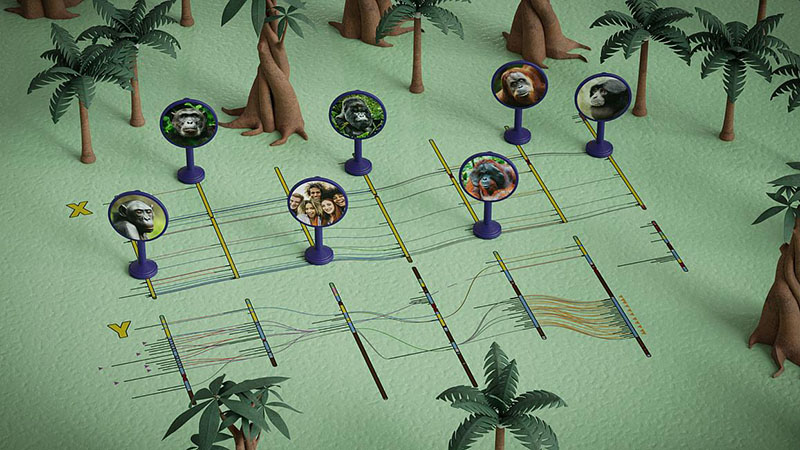Scientists generate the first complete chromosome sequences from non-human primates
Complete X and Y chromosome sequences from six primate species reveal species diversity and insights into evolution
A team of researchers funded by the National Institutes of Health have generated the first complete chromosome sequences from non-human primates. Published in Nature, these sequences uncover remarkable variation between the Y chromosomes of different species, showing rapid evolution, in addition to revealing previously unstudied regions of great ape genomes. Since these primate species are the closest living relatives to humans, the new sequences can provide insights into human evolution.
The researchers focused on the X and Y chromosomes, which play roles in sexual development and fertility, among many other biological functions. They sequenced chromosomes from five great ape species, chimpanzee, bonobo, gorilla and Bornean and Sumatran orangutans, as well as one other primate species that is more distantly related to humans, the siamang gibbon.
“These chromosome sequences add a significant amount of new information,” said Brandon Pickett, Ph.D., a postdoctoral fellow at the National Human Genome Research Institute (NHGRI), part of NIH, and an author of the study. “Only the chimpanzee genome sequence was fairly complete before this, but even that still had large gaps, especially in regions of repetitive DNA.”

Researchers compared the sequences of the ape chromosomes to the human X and Y chromosomes to understand their evolutionary histories.
This page was last updated on Wednesday, May 29, 2024